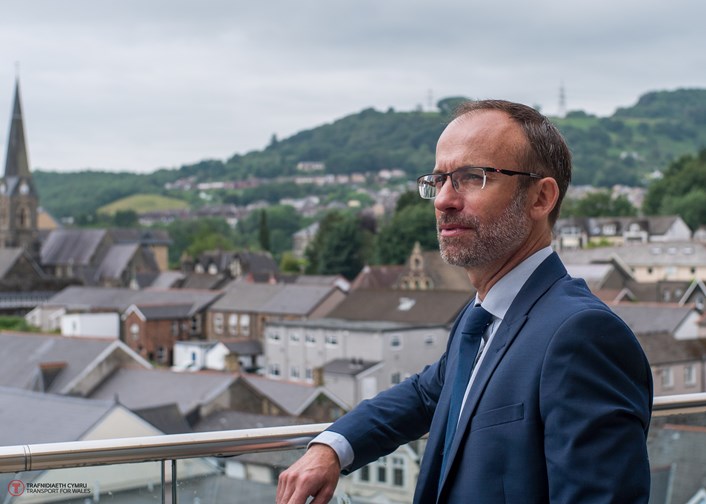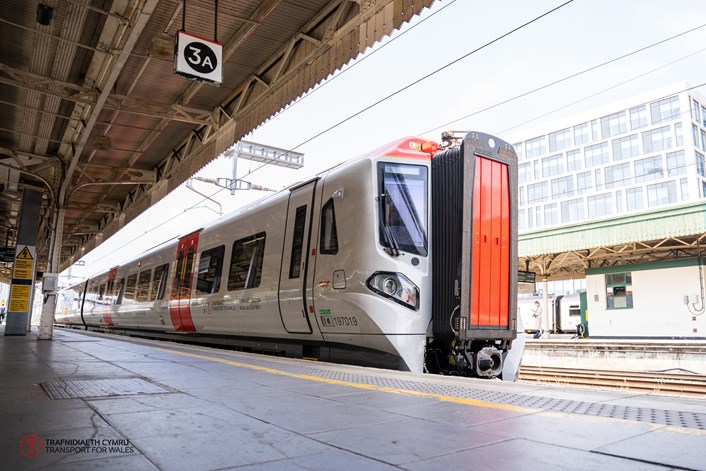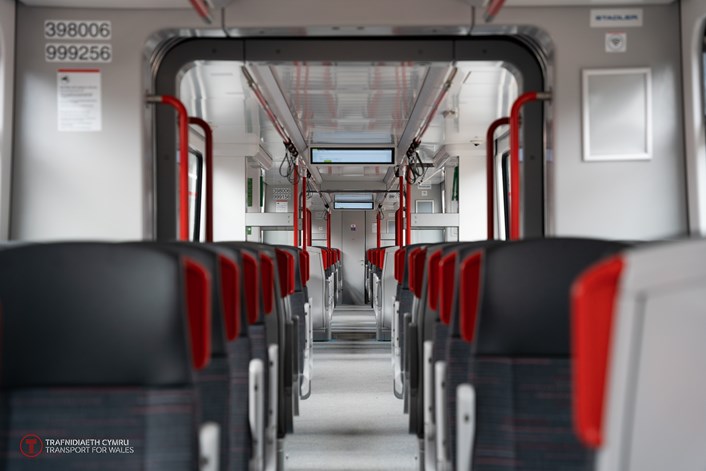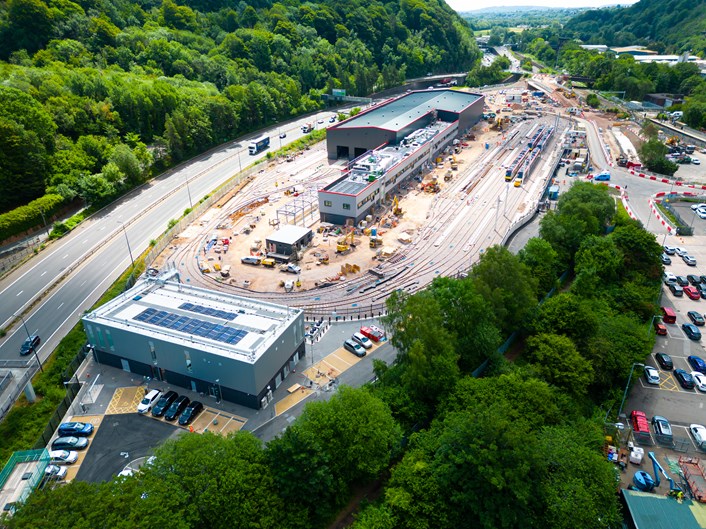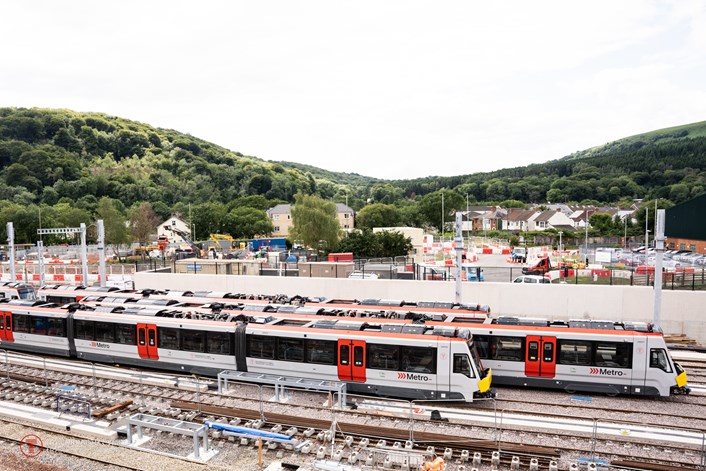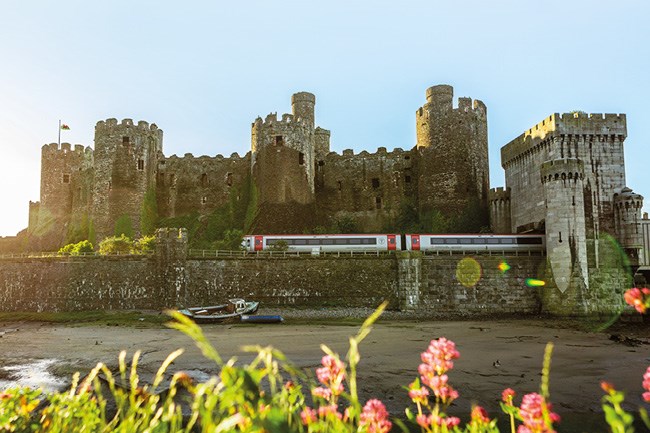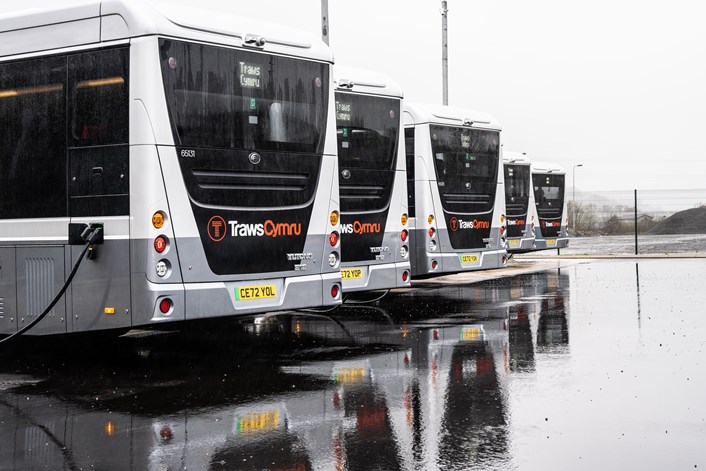25 Oct 2023
An Update from TfW CEO James Price
As we mark the five-year anniversary since taking over rail services as Transport for Wales, it provides us with an opportunity to look back and reflect, noting how far we’ve come and what we’ve achieved. But also, personally for me as CEO, we are still in the early days of delivering on what we’ve promised and I look forward to the next twelve to eighteen months, when our customers will benefit even more from the transformation works that are now well underway.
When we took over from Arriva in 2018, we adopted an ageing fleet of trains with ongoing capacity issues. Some of these trains we’ve removed, some we’ve managed to upgrade or replace, but most importantly we’ve been able to start introducing brand-new trains to our network. When we took over, many of the trains we inherited were inaccessible, dumped human waste on to tracks, leaked water on passengers and had already been working many years longer than they were originally designed for. Wales had the oldest average fleet in the UK and since taking over TfW have either replaced or upgraded/renewed every train that we have in our fleet.
Working with leading train manufacturers Stadler and CAF, we’re now introducing brand-new trains across the Wales and Borders network – 43 to date, with over 100 left. These new trains will be fundamental in improving our network.
People who have already started to use some of our new trains (including myself) will experience improved seating, modern air conditioning and passenger information screens with up-to-the-minute travel information. These trains – already in service - offer a much better overall customer experience and as we continue to add more of these to our network, we’ll also be able to build resilience and enhance service timetabling.
Our performance measures for the last two or three months are showing a clear improvement. The improved stats are linked to the number of new trains we’re adding to our network, and we’ll see further improvements as we continue to add more trains – roughly one every ten days.
Our £800 million investment into brand-new trains which have entered passenger service this year is certainly one of our biggest achievements and will have the most impact on customers. It’s what we’ve promised customers since day one, and now it’s here and happening.
Since 2018, we’ve also increased the number of rail services on our network by 20% and we’ve invested £33 million in our stations alone, matching the previous operators total fifteen-year investment.
Another flagship project, by which we’ll rightly be judged, is our delivery of the South Wales Metro. Since taking ownership of the Core Valley Lines in March 2020, we’ve embarked on a complex infrastructure project to electrify the network; upgrading a railway that dates back to Victorian times. We’ve done this whilst keeping the network open and the people it serves moving.
It’s been difficult for our customers and colleagues; we’ve had to deal with a global pandemic, extreme wet weather conditions and the war in Ukraine impacting our supply chain.
We’ve had to close sections of railway (and will continue to do so); relying on rail replacement services to move customers. At times it's been really disruptive for our lineside neighbours. We’re grateful for the patience they’ve shown and we’re continuing to work as quickly and safely as possible.
Five years on since we first started detailed plans to build the South Wales Metro we’re now in a position where our stakeholders, customers and the people of Wales can physically see the progress we’ve made.
Our £100 million depot at Taff’s Well – the home of the South Wales Metro is constructed and hard to miss from the A470. This includes our new Metro Control Centre, which is now signalling and controlling trains right up and down the valleys lines. We’ve now electrified 60 km of track with another 110km to go and our brand-new tram trains, Wales’s first light rail vehicles are being tested on Metro routes. Throughout the valley lines, there’s new track, signalling, overhead line equipment and there’s plenty of physical changes that are very visual.
The South Wales Metro is phased and will be delivered in stages, and in March this year we introduced our first Metro trains to the Rhymney Valley line. Our Class 231, Fast Light Intercity and Regional Trains (FLIRTs) are already improving the customer experience, and over the coming eighteen months we’ll introduce a total of thirty-five of these trains along with thirty-six electric tram-trains (some of which are now in testing).
There have been some delays within our timeline for delivery of the Metro and some increased costs, because of COVID, the recent cost-of-living crisis and inflation, but our teams are continuing to deliver despite these challenging circumstances, helping manage these costs as much as possible.
The progress we’ve made on building the South Wales Metro is another of our big achievements over the last five years and I’m excited for the next stage over the coming year. In the last week, we’ve electrified more of the line, with sections from Aberdare to Pontypridd and Merthyr Tydfil to Abercynon.
From an organisational viewpoint, it’s difficult to try and summarise our five-year journey as so much has happened; we’ve had to continually evolve and be flexible in our approach as our remit has expanded. We’re simply not the same organisation that we were five years ago and we’re working from a very different business model.
Five years ago, our Wales and Borders network was being managed by Keolis Amey and they were delivering their contract to Transport for Wales and Welsh Government. Today, because of the pandemic, the network in Wales is in public ownership and is being run by TfW as a not-for-profit organisation, wholly owned by Welsh Government. This means that all revenue is being reinvested back into the public transport network.
This is something that all of us at TfW are extremely proud of. We’re working hard to develop an efficient public transport system and the profit generated through that system will be reinvested into it, and through that model we’ll be able to improve the lives of those who use it.
When we launched back in 2018, much of what we were doing as an organisation was related to rail. However, we’ve grown and evolved, and today we’re a multi-modal transport organisation, with an expanding remit. We now have more influence over Active Travel and bus services in Wales.
For the future, we’re looking holistically at the public transport network in Wales and identifying all the different modes that can be improved, with a clear understanding of how we can link them to create a more integrated system.
We’re on a journey to create a transport system for Wales that has one network, one timetable and one ticket, a system that is truly multi-modal and will drive modal shift while also decreasing the demand for subsidies and increase revenue.
An evident indicator of change and growth within our organisation is if we simply compare our staff numbers; in 2018 we launched with one hundred colleagues and today, through our ownership of rail, catering and cleaning services, Pullman Rail Ltd, Traveline Cymru and expansion within our teams, we have over 3,000 colleagues.
In the last year, through the strategic leadership of the TfW Board we established our new Operating Model, which allows us to be structured and streamlined for the future. Working as one team, with one set of objectives, provides us with more opportunities to work collaboratively and really transform public transport within Wales in a truly multi-modal way.
In 2021, Welsh Government published Llwybr Newydd: the Wales transport strategy with a focus on twenty-year ambitions and five-year priorities. Llwybr Newydd translates to ‘new path’ and it’s fair to say that Welsh Government have truly set out a new way of thinking that places people and climate change at the front and centre of our transport system.
As Welsh Government’s trusted partner, we have a vital role in delivering many aspects of this strategy and we also provide expert advice and analysis on transport related issues.
We’ve experienced and adapted to this ongoing change over the past few years, but throughout it all there have always been some constants.
Firstly, our purpose as an organisation has always remained the same; we have many ongoing projects from building the South Wales Metro to introducing demand-responsive transport with fflecsi (our bus service), but the reason we’re doing all this is to improve the lives of those in Wales and the Borders. Our aim is to make transport in Wales truly sustainable and fit for future generations.
The climate emergency is something that is being addressed on a global scale and we’re supporting Welsh Government with their decarbonisation agenda. Welsh Government have set a net-zero target for 2050 and the target for public sector in Wales is to be collectively net zero by 2030.
To help achieve these ambitious targets, we need to change the way that people travel throughout Wales and drive a modal shift from the private car and towards public transport and Active Travel.
To encourage this modal shift to public transport, we must make sustainable transport the easiest, most attractive and routine option for people. Much of what we’ve been doing and are continuing to do involves creating the right set of services and products for the future and increasing people’s willingness and ability to use them.
The second characteristic that TfW has had since day one is the endless passion and expertise of those who are working for us. Our workforce is the lifeblood of our organisation and I’m always grateful for their enthusiasm and drive to deliver. At TfW, we’ve set ourselves high and ambitious targets, and I’m confident that we have the right people to deliver.
I’d like to thank all our colleagues, stakeholders and customers who have been on this journey of transformation from day one. It hasn’t been easy; this level of change doesn’t happen overnight and we’re not where we want to be yet. But I truly believe over the next eighteen months, our hard work will really start to bloom with additional new trains and delivery of the South Wales Metro.
It’s then our first chapter will be complete; the hard work will have paid off and we’ll look forward to the second.

